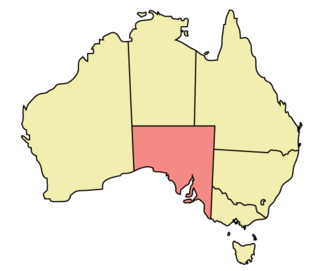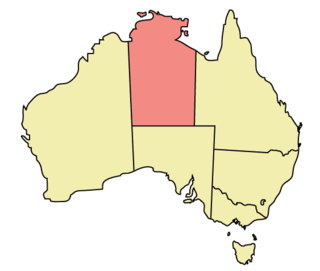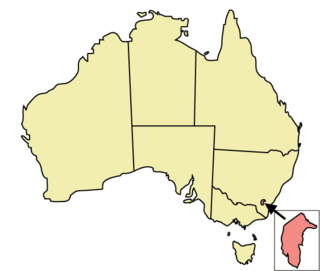Same-sex adoption is the adoption of children by same-sex couples. It may take the form of a joint adoption by the couple, or of the adoption by one partner of the other's biological child.
Same-sex marriage has been legal in Ireland since 16 November 2015. A referendum on 22 May 2015 amended the Constitution of Ireland to provide that marriage is recognised irrespective of the sex of the partners. The measure was signed into law by the President of Ireland, Michael D. Higgins, as the Thirty-fourth Amendment of the Constitution of Ireland on 29 August 2015. The Marriage Act 2015, passed by the Oireachtas on 22 October 2015 and signed into law by the Presidential Commission on 29 October 2015, gave legislative effect to the amendment. Same-sex marriages in the Republic of Ireland began being recognised from 16 November 2015, and the first marriage ceremonies of same-sex couples in Ireland occurred the following day.

Same-sex marriage has been legal in Nova Scotia since September 24, 2004 when the province began issuing marriage licences to same-sex couples immediately following a court ruling from the Nova Scotia Supreme Court. Nova Scotia became the sixth jurisdiction in Canada, and the ninth worldwide after the Netherlands, Belgium, Ontario, British Columbia, Quebec, Massachusetts, Yukon, and Manitoba, to legalise same-sex marriage.
Same-sex marriage has been legal in Slovenia since 9 July 2022 in accordance with a ruling from the Constitutional Court of Slovenia. The court ruled that the ban on same-sex marriages violated the Constitution of Slovenia and gave the Slovenian Parliament six months to amend the law to align with the ruling, although the decision took effect immediately after publication. The National Assembly passed legislation to align with the court ruling on 4 October 2022, which was vetoed by the National Council one week later, but the veto was then overridden by the National Assembly on 18 October 2022.
This article contains a timeline of significant events regarding same-sex marriage and legal recognition of same-sex couples worldwide. It begins with the history of same-sex unions during ancient times, which consisted of unions ranging from informal and temporary relationships to highly ritualized unions, and continues to modern-day state-recognized same-sex marriage. Events concerning same-sex marriages becoming legal in a country or in a country's state are listed in bold.
Same-sex marriage has been legal in New Zealand since 19 August 2013. Legislation to allow it, the Marriage Amendment Act 2013 was passed by the House of Representatives on 17 April 2013 by 77 votes to 44 and received royal assent on 19 April. It entered into force on 19 August, to allow time for the Department of Internal Affairs to make the necessary changes for marriage licensing and related documentation. New Zealand became the first country in Oceania, the fourth in the Southern Hemisphere, and the fifteenth overall to allow same-sex couples to marry. Civil unions have also been available for both same-sex and opposite-sex couples since 2005.

Lesbian, gay, bisexual, and transgender (LGBT) rights in the Republic of Ireland are among the most advanced in Europe. Ireland is notable for its transformation from a country holding overwhelmingly conservative attitudes toward LGBT issues, in part due to the opposition by the Roman Catholic Church, to one holding overwhelmingly liberal views in the space of a generation. In May 2015, Ireland became the first country to legalise same-sex marriage on a national level by popular vote. The New York Times declared that the result put Ireland at the "vanguard of social change". Since July 2015, transgender people in Ireland can self-declare their gender for the purpose of updating passports, driving licences, obtaining new birth certificates, and getting married. Both male and female same-sex sexual activity have been legal in the state since 1993. Government recognition of LGBT rights in Ireland has expanded greatly over the past two decades. Homosexuality was decriminalised in 1993, and most forms of discrimination based on sexual orientation are now outlawed. Ireland also forbids incitement to hatred based on sexual orientation.

New Zealand lesbian, gay, bisexual, and transgender (LGBT) rights are some of the most extensive in the world. The protection of LGBT rights is advanced, relative to other countries in Oceania, and among the most liberal in the world, with the country being the first in the region and thirteenth in the world to enact same-sex marriage.

The Homosexual Law Reform Act 1986 is a New Zealand Act of Parliament that broadly legalised consensual sex between men as well as anal sex regardless of partners' gender. It removed the provisions of the Crimes Act 1961 that criminalised this behaviour. The legislation established a uniform age of consent, setting it at 16 for both same-sex and opposite-sex partners.

Lesbian, gay, bisexual and transgender (LGBT) rights in Australia significantly advanced over the latter half of the twentieth century and early twenty-first century, and are now ranked among the highest in the world. Opinion polls and the Australian Marriage Law Postal Survey indicate widespread popular support for same-sex marriage within the nation. A 2013 Pew Research poll found that 79% of Australians agreed that homosexuality should be accepted by society, making it the fifth-most supportive country surveyed in the world. With its long history of LGBT activism and annual Gay and Lesbian Mardi Gras festival, Sydney has been named one of the most gay-friendly cities in the world.
The legal status of same-sex marriage has changed in recent years in numerous jurisdictions around the world. The current trends and consensus of political authorities and religions throughout the world are summarized in this article.

Family First New Zealand is a conservative Christian lobby group in New Zealand. It was founded in March 2006 by former Radio Rhema talkback radio host and South Auckland social-worker Bob McCoskrie who continues to be its National Director. Its 2006 stated objectives were to "seek to influence public policy affecting the rights and protection of families and promote a culture that values the family". In 2009 Victoria University religious studies professor Paul Morris said Family First was "successfully broadening the Christian agenda in New Zealand politics in a way never seen before". In 2020 Family First was described as "New Zealand's most formidable conservative campaigners". Family First was established by a trust deed under the Charitable Trusts Act 1957 in 2006, was registered as a charity in 2007 and deregistered in 2022.
Same-sex marriage is legal in the Australian Capital Territory, and in the rest of Australia, after the Federal Parliament legalised same-sex marriage in December 2017.

The rights of lesbian, gay, bisexual, and transgender (LGBT) people in the Australian state of South Australia are advanced and well-established. South Australia has had a chequered history with respect to the rights of LGBT people. Initially, the state was a national pioneer of LGBT rights in Australia, being the first in the country to decriminalise homosexuality and to introduce a non-discriminatory age of consent for all sexual activity. Subsequently, the state fell behind other Australian jurisdictions in areas including relationship recognition and parenting, with the most recent law reforms regarding the recognition of same-sex relationships, LGBT adoption and strengthened anti-discrimination laws passed in 2016 and went into effect in 2017.
This is a list of events in 2011 that affected LGBT rights.
The topic of same-sex unions and military service concerns the government treatment or recognition of same-sex unions who may consist of at least one servicemember of a nation's military.
Until 2017, laws related to LGBTQ+ couples adopting children varied by state. Some states granted full adoption rights to same-sex couples, while others banned same-sex adoption or only allowed one partner in a same-sex relationship to adopt the biological child of the other. Despite these rulings, same-sex couples and members of the LGBTQ+ community still face discrimination when attempting to foster children.

Lesbian, gay, bisexual, and transgender (LGBT) persons in Australia's Northern Territory enjoy the same legal rights as non-LGBT residents. The liberalisation of the rights of lesbian, gay, bisexual and transgender (LGBT) people in Australia's Northern Territory has been a gradual process. Homosexual activity was legalised in 1983, with an equal age of consent since 2003. Same-sex couples are recognised as de facto relationships. There was no local civil union or domestic partnership registration scheme before the introduction of nationwide same-sex marriage in December 2017, following the passage of the Marriage Amendment Act 2017 by the Australian Parliament. The 2017 Australian Marriage Law Postal Survey, designed to gauge public support for same-sex marriage in Australia, returned a 60.6% "Yes" response in the territory. LGBT people are protected from discrimination by both territory and federal law, though the territory's hate crime law does not cover sexual orientation or gender identity. The territory was the last jurisdiction in Australia to legally allow same-sex couples to adopt children.

The Australian Capital Territory (ACT) is one of Australia's leading jurisdictions with respect to the rights of lesbian, gay, bisexual, transgender, queer and intersex (LGBTQI) people. The ACT has made a number of reforms to territory law designed to prevent discrimination of LGBT people; it was the only state or territory jurisdiction in Australia to pass a law for same-sex marriage, which was later overturned by the High Court of Australia. The Australian Capital Territory, Victoria and Queensland are the only jurisdictions within Australia to legally ban conversion therapy on children. The ACT's laws also apply to the smaller Jervis Bay Territory.
This is a list of notable events in the history of LGBT rights that took place in the year 2020.









